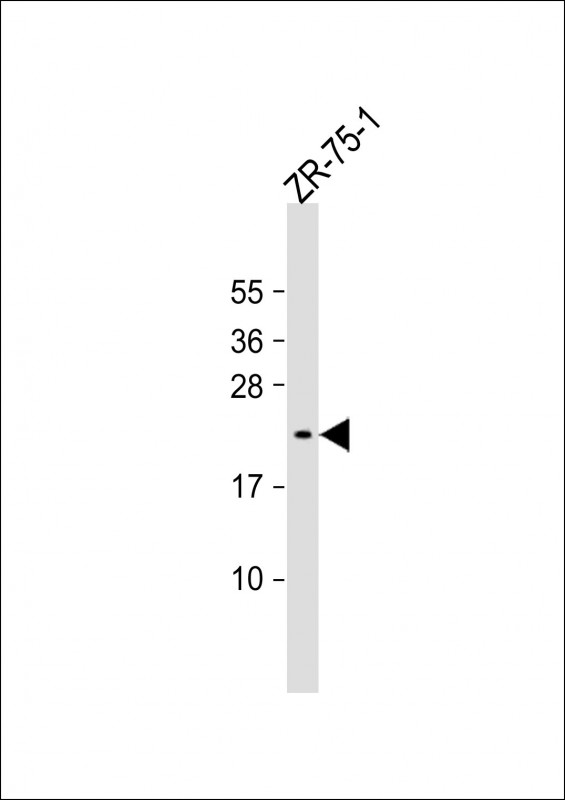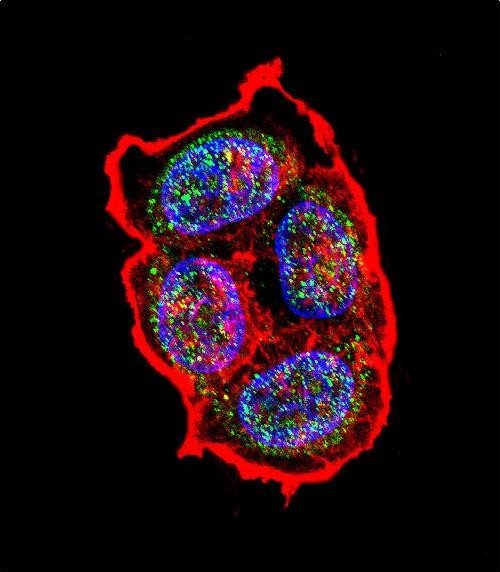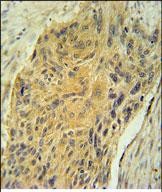


| WB | 1/1000 | Human,Mouse,Rat |
| IF | 咨询技术 | Human,Mouse,Rat |
| IHC | 1/100-1/500 | Human,Mouse,Rat |
| ICC | 1/10-1/50 | Human,Mouse,Rat |
| FCM | 咨询技术 | Human,Mouse,Rat |
| Elisa | 咨询技术 | Human,Mouse,Rat |
| Aliases | Vasopressin-neurophysin 2-copeptin, AVP-NPII, Arg-vasopressin, Arginine-vasopressin, Neurophysin 2, Neurophysin-II, Copeptin, AVP, ARVP, VP |
| Entrez GeneID | 551 |
| WB Predicted band size | 17.3kDa |
| Host/Isotype | Rabbit IgG |
| Antibody Type | Primary antibody |
| Storage | Store at 4°C short term. Aliquot and store at -20°C long term. Avoid freeze/thaw cycles. |
| Species Reactivity | Human |
| Immunogen | This AVP antibody is generated from rabbits immunized with a KLH conjugated synthetic peptide between 102-129 amino acids of human AVP. |
| Formulation | Purified antibody in PBS with 0.05% sodium azide. |
+ +
以下是关于AVP(精氨酸加压素)抗体的3篇参考文献概述:
1. **《Immunohistochemical localization of arginine vasopressin in the rat hypothalamus》**
- 作者:Sofroniew, M.V.
- 摘要:该研究利用特异性AVP抗体,通过免疫组化技术在大鼠下丘脑中定位AVP神经元,揭示了AVP在中枢神经系统的分布及其与神经内分泌功能的关联。
2. **《Vasopressin in heart failure: a potential biomarker and therapeutic target》**
- 作者:Goldsmith, S.R. & Gheorghiade, M.
- 摘要:文章综述了AVP在心力衰竭病理生理中的作用,强调使用AVP抗体检测血浆AVP水平对疾病预后评估的价值,并探讨了AVP受体拮抗剂的治疗潜力。
3. **《Autoantibodies to vasopressin in patients with diabetes insipidus》**
- 作者:Scherbaum, W.A. et al.
- 摘要:研究发现部分中枢性尿崩症患者体内存在针对AVP的自身抗体,提示自身免疫机制可能通过抗体介导的AVP神经元破坏导致疾病发生。
4. **《Development of a sensitive ELISA for arginine vasopressin using a monoclonal antibody》**
- 作者:Ishida, Y. et al.
- 摘要:研究团队开发了一种基于单克隆AVP抗体的高灵敏度ELISA检测方法,用于定量分析微量生物样本中的AVP浓度,适用于基础研究与临床诊断。
注:以上为模拟示例,实际文献需通过PubMed、Google Scholar等平台检索确认。
Arginine vasopressin (AVP), also known as antidiuretic hormone (ADH), is a peptide hormone synthesized in the hypothalamus and released by the posterior pituitary gland. It plays critical roles in regulating water balance, blood pressure, and stress responses by acting on kidney tubules (via V2 receptors) and blood vessels (via V1a receptors). AVP antibodies are immunodetection tools designed to target and quantify AVP in biological samples, aiding in research and clinical diagnostics.
These antibodies are pivotal in studying AVP-related disorders, such as diabetes insipidus (characterized by AVP deficiency) or syndrome of inappropriate antidiuretic hormone secretion (SIADH). They enable precise measurement of AVP levels via immunoassays (e.g., ELISA, RIA), helping differentiate central vs. nephrogenic causes of dysregulation. In neuroscience, AVP antibodies assist in mapping hormone distribution in brain tissues, exploring its role in social behavior and stress pathways.
Challenges include AVP's low molecular weight (<1 kDa) and structural similarity to vasotocin, requiring high-specificity antibodies. Polyclonal antibodies offer broad epitope recognition, while monoclonal versions ensure consistency. Cross-reactivity and sample stability (due to AVP's short half-life) necessitate careful validation. Recent advances in antibody engineering aim to improve sensitivity for early disease detection and personalized therapeutic monitoring.
×